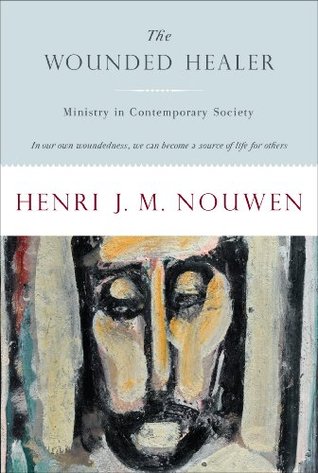More on this book
Community
Kindle Notes & Highlights
Read between
March 17 - March 18, 2018
For the minister is called to recognize the sufferings of his time in his own heart and make that recognition the starting point of his service. Whether he tries to enter into a dislocated world, relate to a convulsive generation, or speak to a dying man, his service will not be perceived as authentic unless it comes from a heart wounded by the suffering about which he speaks.
Nuclear man is the man who realizes that his creative powers hold the potential for self-destruction.
When nuclear man feels himself unable to relate to the Christian message, we may wonder whether this is not due to the fact that, for many people, Christianity has become an ideology. Jesus, a Jew executed by the leaders of his time, is quite often transformed into a cultural hero reinforcing the most divergent and often destructive ideological points of view. When Christianity is reduced to an all-encompassing ideology, nuclear man is all too prone to be skeptical about its relevance to his life experience.
There he comes to the shocking, but at the same time self-evident, insight that prayer is not a pious decoration of life but the breath of human existence.
The man who can articulate the movements of his inner life, who can give names to his varied experiences, need no longer be a victim of himself, but is able slowly and consistently to remove the obstacles that prevent the spirit from entering. He is able to create space for Him whose heart is greater than his, whose eyes see more than his, and whose hands can heal more than his.
Through compassion it is possible to recognize that the craving for love that men feel resides also in our own hearts, that the cruelty that the world knows all too well is also rooted in our own impulses. Through compassion we also sense our hope for forgiveness in our friends’ eyes and our hatred in their bitter mouths. When they kill, we know that we could have done it; when they give life, we know that we can do the same. For a compassionate man nothing human is alien: no joy and no sorrow, no way of living and no way of dying.
The Christian way of life does not take away our loneliness; it protects and cherishes it as a precious gift.
Many marriages are ruined because neither partner was able to fulfill the often hidden hope that the other would take his or her loneliness away. And many celibates live with the naïve dream that in the intimacy of marriage their loneliness will be taken away.
When we have found the anchor places for our lives in our own center, we can be free to let others enter into the space created for them and allow them to dance their own dance, sing their own song and speak their own language without fear. Then our presence is no longer threatening and demanding but inviting and liberating.


